Disclosure: Meeple Mountain received a free copy of this product in exchange for an honest, unbiased review. This review is not intended to be an endorsement.
In many years, the exceptional game Carnegie (2022, Pegasus Spiele) would have been my #1 gaming experience of the year. Beautiful board, a very interesting milestone system, lots of variability in the setup, and maybe my favorite action selection format of that year.
As it turned out, Carnegie was my second favorite game from 2022, eclipsed only by the stellar gameplay of Tiletum. (If I’m being honest, dice gave Tiletum the edge, because the tactical gameplay was just a better fit for me and that game.) That still means that any time I can get a chance to play either game, I’ll always bite.
The best thing about expansions: another reason to whip the original game out and get it back to the table. When I heard that an expansion was inbound for Carnegie—known as Carnegie: Departments and Donations—I made sure to grab a copy.
Here is the “worst” part about Departments and Donations: it doesn’t cleanly fit in the original box. Because it comes in a 9”x12” plastic sleeve with all of the new tiles, instructions and bidding sheets, it looks kind of sloppy now as it sits on my shelf as it sits on top of the Carnegie box.
For a game with easily the best-looking board from 2022, this is unfortunate. Luckily, everything else about the product is a must for a fan of the base game.
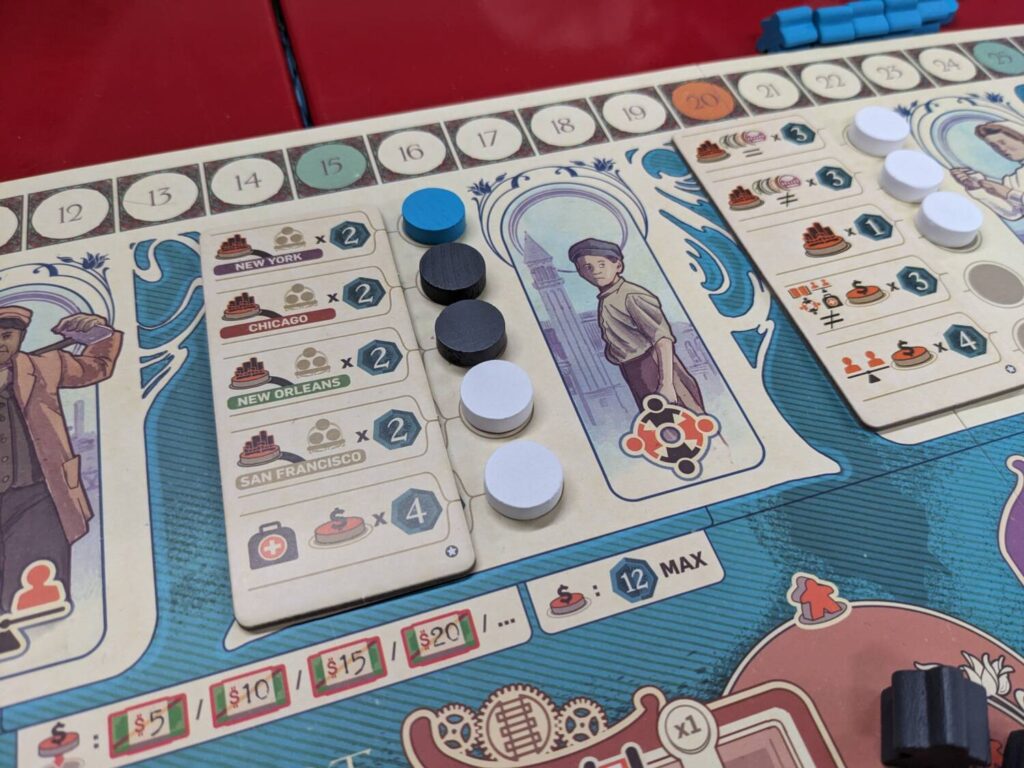
What’s New?
For any questions about the base game, feel free to peruse my previous review.
Departments and Donations comes with three new mini additions to spice up the base game.
First, the game’s setup is now tied to a bidding sheet. Every player is given a sheet along with $50 in imaginary money. This $50 can be used to spread across the main elements of the base game’s setup, with much more variability. One could spend money—or, lose victory points!—to get more meeples, start with more goods cubes, or begin play with more moves of their starting workers.
This addition alone would have been enough for me. The person who bids the most money on their setup becomes the game’s first player—instead of the funny idea that the first player from the base game should go to “the most daring player at the table”, per the original rules—and from there, everyone takes all of their stuff and possibly loses victory points based on their choices, if any. (Unfortunately, there is not a second tiebreaker here. If multiple players spend an equal amount of money, then the first player is chosen randomly amongst those top, tied players.)
Any money left from the $50 bid amount becomes each player’s starting cash.
This is the kind of variability that I can get behind. You wanna spend all $50 to get a bunch of sweet upgrades? Go for it…you’ll just begin the game with no money. You wanna spend almost no money to stick with the bare minimums, then have a lot of financial flexibility during play? Go to town.
The second addition is a set of four new Donation boards. In turn order, a player selects one of these Donation boards, and chooses to either cover one of the four Donation sections from the base game or throw that tile out of the game. The new Donation boards are not fancy. In fact, we intentionally had one of our players choose to throw one of the boards out in my first play of the expansions just to see if it mattered.
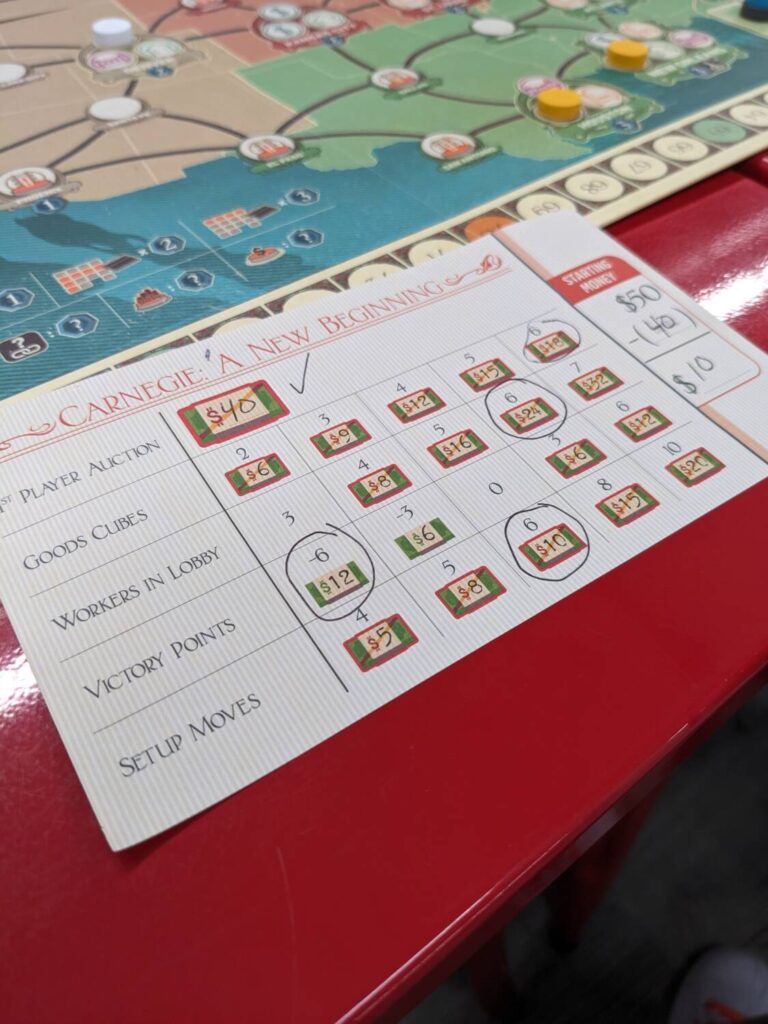
It did not. The new Donation boards fall into “more is more” territory—if players were really itching for more variability in that area of the game, now you’ve got it. But functionally, nothing has changed here and I believe extra Donation tiles were added purely to make this expansion feel like it has more meat on the bone.
The third mini-expansion is why most players will feel good about the purchase of Departments and Donations: new Departments. A full SIXTEEN new Departments are included here, and even though I’ve only played the expansion a couple times, I am stunned by how amazing these new Departments feel.
Four of the Departments affect end-game scoring and all of them are fantastic. A special shout-out here for the Post Office Department, which grants an extra “connection point” to their total (these are the points that are considered when looking at a player’s connected city presence on the map, and ranges from 2-5 connection points based on the number of major cities connected within a player’s network). The Post Office also gives the owner an extra nine points if they have a five-point connection.
I really like that the rulesheet for this expansion groups the new Departments in a way that shines a light on what works best about the use of these new tiles. The tiles grouped as “Local Agency Networks” really work for me. I love that there are tiles that push harder on specialization within certain regions, so if I decide I’m stuck with doing a lot of actions in one part of the map, I can double down on this with Departments like Branding and Renovation to get more cash, goods cubes, or study points to use elsewhere.
Many of the powers feel a little broken…and this is a good thing.
Mixed with the base game departments, so many new strategies pop now with the use of these departments. I also think this is the boost Carnegie needed to minimize the effect of R&D departments, because in most games, R&D tiles are the first ones to go. Now, many of the other departments (assuming they are in play) become viable ways to supercharge in-game perks and end-game bonuses in a meaningful way.
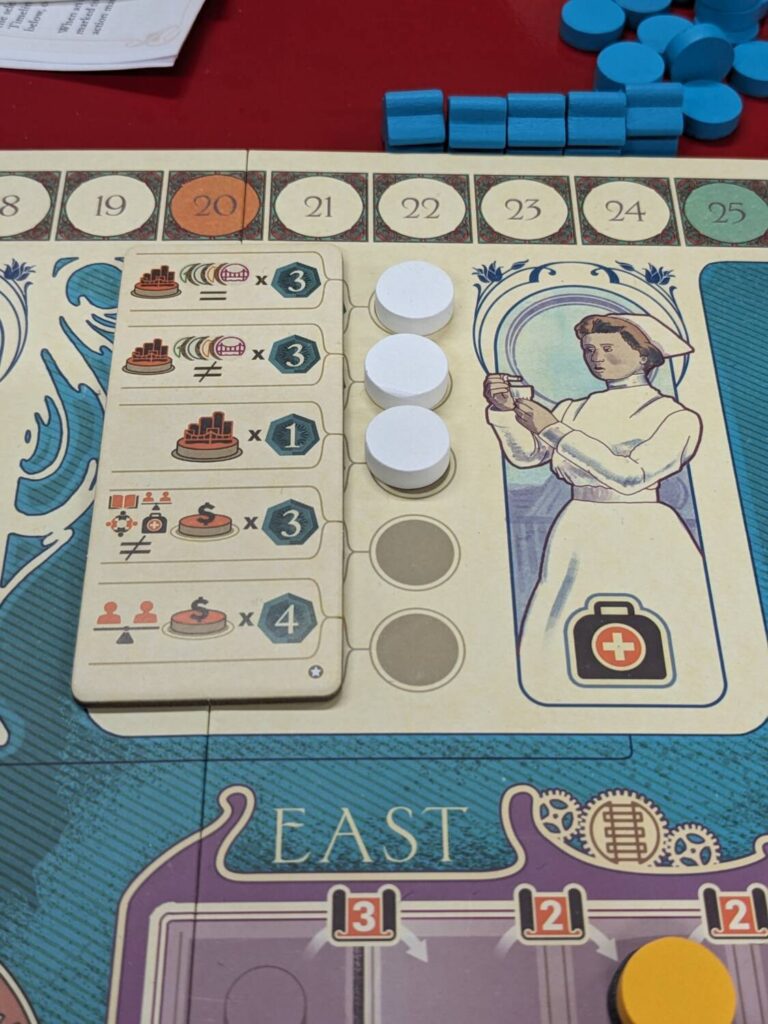
Yep, Buy It
If you own the base game, Carnegie: Departments and Donations is a 100% must-buy. This is particularly true if you’ve played the base game 10+ times and were starting to get a little predictable in your approach to departments.
The bid sheet setup and the extra Donation tiles are certainly valuable, and the bid sheet is definitely the way to go now with starting a new game. But you are here for the new Departments, and they add so much to an already excellent game. The new minor variants include one format, “Open Bar Setup”, that asks players to use one copy of each of the 32 Departments from the base game and the expansion, so that everything is in play but that everyone will be using different powers.
I haven’t tried the game with this format yet, but I love that it is there. Carnegie is still a delight, and this expansion helps keep things fresh for the foreseeable future. I just wish the storage solution was better!!


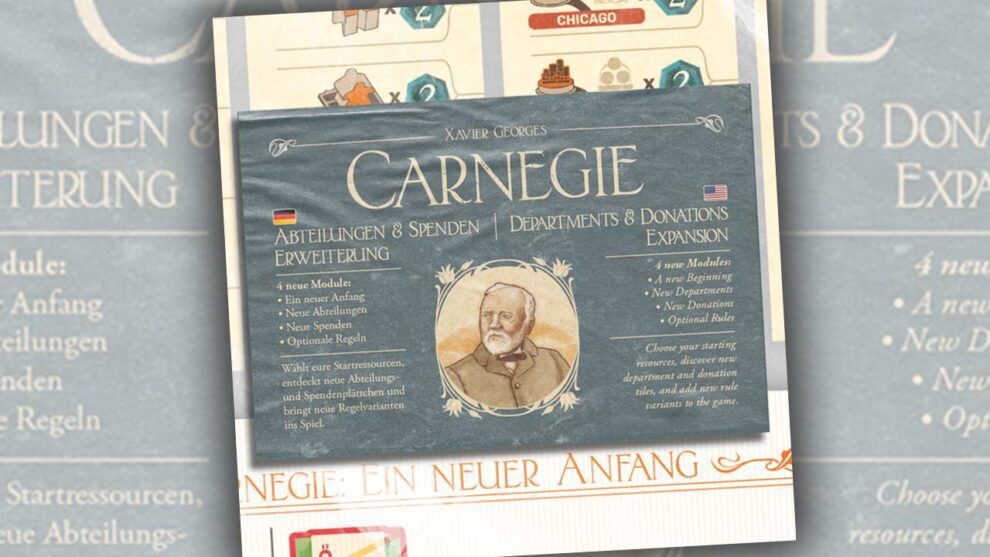

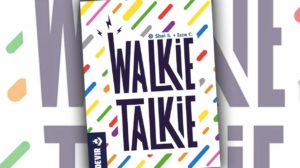


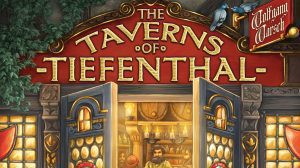




Add Comment